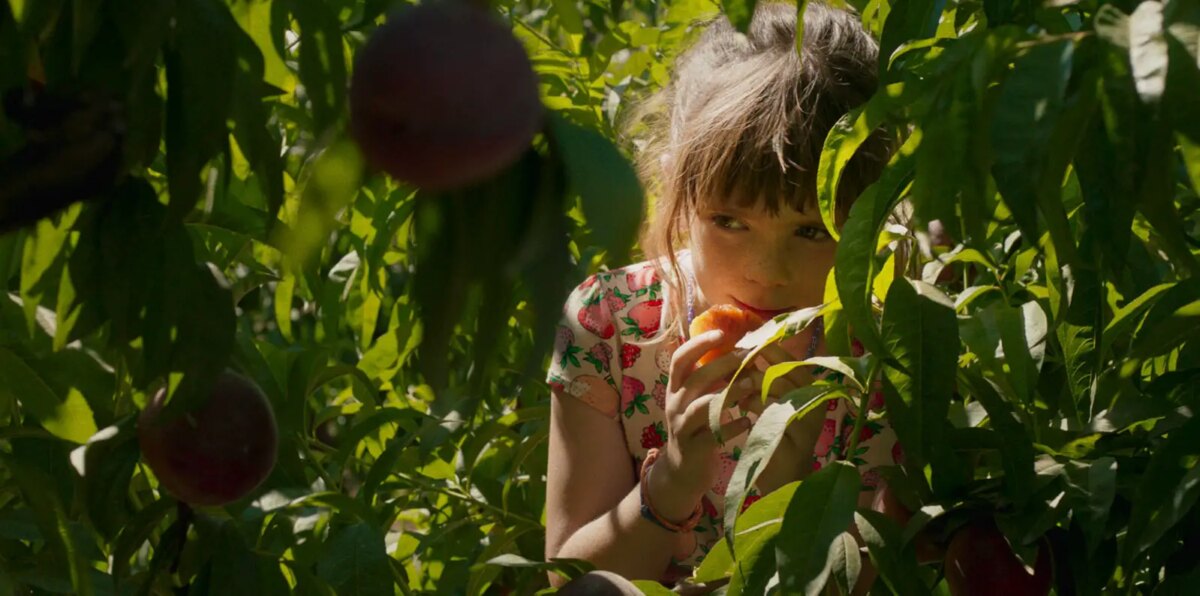
In the heating agricultural outskirts of Lleida, Catalonia, resides the Solé family, making a livelihood off sowing and harvesting a peach farm. The happy joint family, however, comes at a standoff with the landowner, the young Pinyol. Pinyol wishes to graze Solés’ agricultural land to install solar panels, thus, breaking off a promise his grandfather made to the Solé family that they will always remain unofficial harvesters and owners of the land.
Alcarràs then heads to paint a bittersweet portrait of a family that is to face the consequences of this “development project.” But it isn’t just the crises the project may cause to the family that Alcarràs deal with. Because it’s not just the land the family is about to lose.
It’s the Solé legacy that’s in jeopardy. For the family patriarch and retired eldest Solé, Rogelio, it’s the only purpose he has known in his life. For Quimet, his son, and head of the family, it’s his pride and his family’s bread and butter. And for little Iris, the youngest child in the family, it’s her phenomenal play area that houses her favorite rusted and discarded car she calls her and her cousins’ den.
And while the connections they share with harvesting peaches in the scorching heat are specific to individuals, there’s this collective harmony of togetherness that it brings to their lives. Alcarràs is the joyous, tearful, and heartfelt depiction of that very notion.
“…the Sóle family must overcome an impending evacuation from their farmlands and their known way of life.”
Though Alcarràs gets its driving force of a story from the core subplot, the film reaches you beyond any specific tale. The film’s narrative instead takes you through separate arcs of how each Solé deals with this unprecedented and unwanted change. As they gaze over the lake, they see trucks and solar panels slowly consuming their traditional way of life, bringing an imminent dissolution of their farm in the name of progress.
Simón and co-writer Arnau Vilaró layer several sweet and bitter moments in each character’s journey through the season and gives them their own outspoken significance to the story. In her commentary on capitalism and the destabilization of traditional farming, Simón uses her well-written and well-trained performers, neither of whom comes from a professional acting background, and takes us through remarkably natural documentation of her experiences as a native of Catalonia, Spain.
It’s not the first time Simón has cast non-actors to perform central leads in her film. However, organizing a whole ensemble of non-actors and putting them together in most sequences makes Alcarràs an excellent example of collaborative filmmaking efforts. Featuring a cast that substantially focuses on kids and young performers, having non-actors display the sheer fragility of various emotions on-screen is nothing less than mesmerizing to witness.
Among them, Ainet Jounou, who plays little Iris, brings the best of the film’s optimistic undertones through her adorable charm and body language. From her bond with her cousins and her playfulness with her siblings to her naive understanding of surrounding events – Jounou, bringing her actual child-like traits to the screen, becomes the cynosure of the movie.
Also adding great value to the cast are Xènia Roset and Albert Bosch, playing Iris’ siblings, Mariona and Roger. Playing teenagers, the two bring much-needed balance to two contrasting generations of characters in the film – the worrisome adults and carefree kids.














